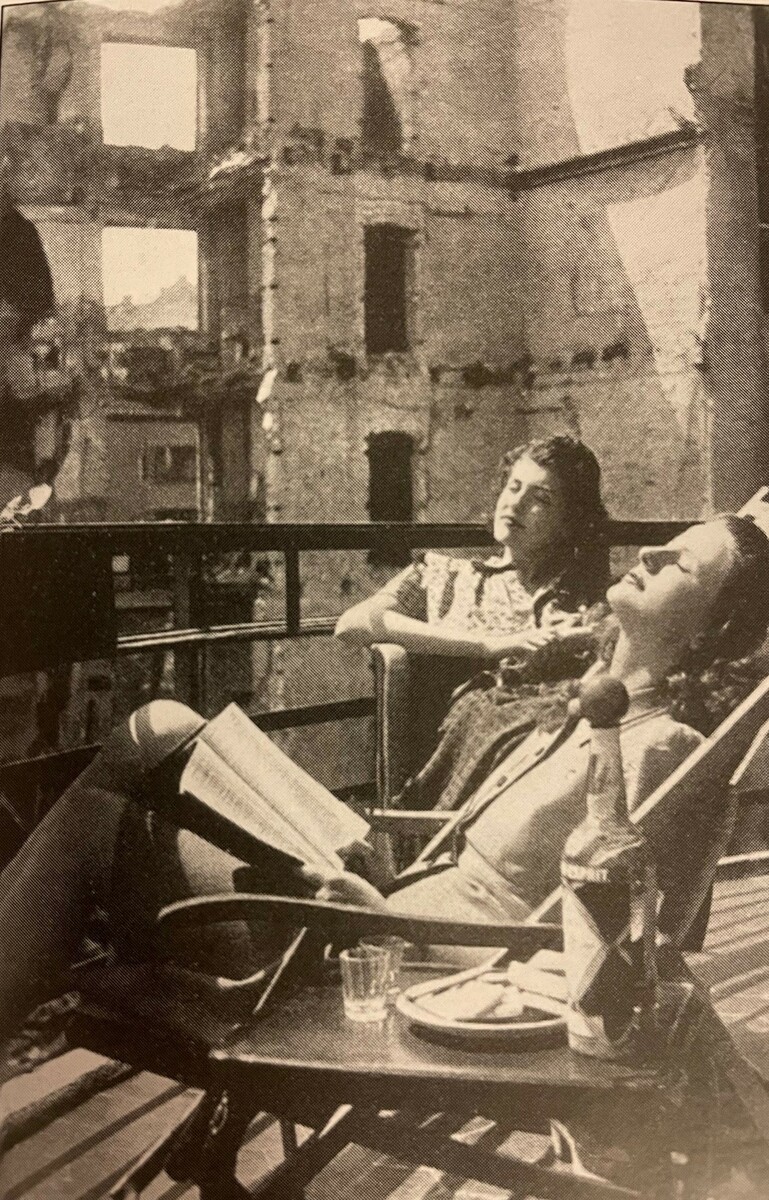Source

Source: Photograph, unknown photographer. tele 1/1944, p. 15. Courtesy of Arbeitsstelle für Kommunikationsgeschichte und angewandte Kulturwissenschaften, FU Berlin.
The Ministry of Propaganda led by Joseph Goebbels was not the only government office charged with producing and spreading Nazi propaganda. Among other measures, the Foreign Office led by Joachim von Ribbentrop used its press office to produce a number of both German and foreign-language publications in order to influence public opinion on Germany abroad, especially in countries that were allies, had remained neutral, or were considered important targets for propaganda. Foreign language magazines were published in Italy, Sweden, Spain, Turkey, and the United States, for example. This image is taken from the first issue of the Swedish-language magazine tele, which was published between October 1944 and May 1945. Its layout was based on American illustrated magazines such as Life, and one of its most important features were high-quality photographs. While its articles were not openly political, they sought to convey a positive image of life in Germany and occupied Europe. In this image two women lounge in the sun on comfortable patio chairs, reading and relaxing. The seemingly pleasurable activities and the women’s calm demeanor, however, are juxtaposed by the bombed-out building across the street. The image is a staged scene that aims to distract from wartime struggles—the long lines for food, the fear and anxiety about air raids, and the long hours of labor that these women would have endured. Additionally, the bottle of spirits and the snacks seen in this photo are conspicuous objects, in that they were only available on the black market by this point, and since the black market was illegal, their presence seems to be suggesting that these products were available through legal channels. The photo thus denied the realities of war and suggested to readers abroad that Germany remained resilient and that conditions within Germany remained tolerable—enjoyable even—despite the grim realities of everyday life.

Source: Photograph, unknown photographer. tele 1/1944, p. 15. Courtesy of Arbeitsstelle für Kommunikationsgeschichte und angewandte Kulturwissenschaften, FU Berlin.
Peter Longerich, Propagandisten im Krieg. Die Presseabteilung des Auswärtigen Amtes unter Ribbentrop. München: Oldenbourg, 1987. https://doi.org/10.1524/9783486595499.fm